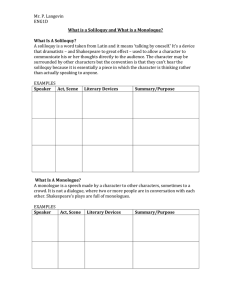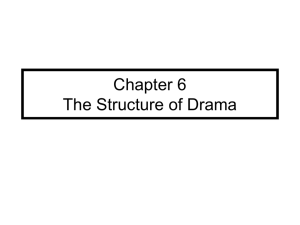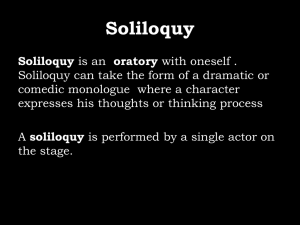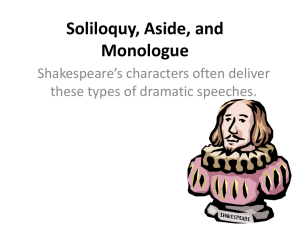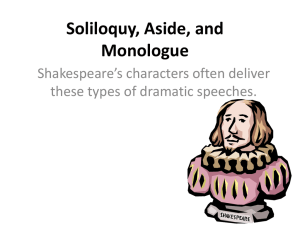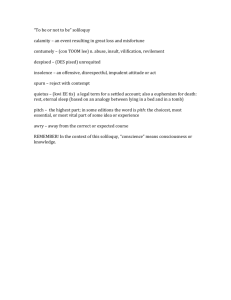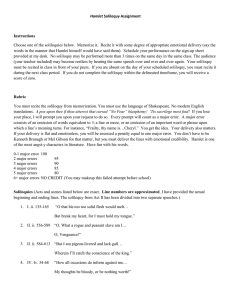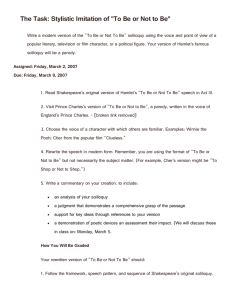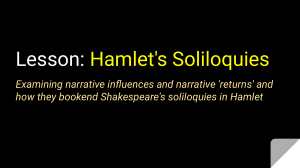Monologues vs. Soliloquys
advertisement
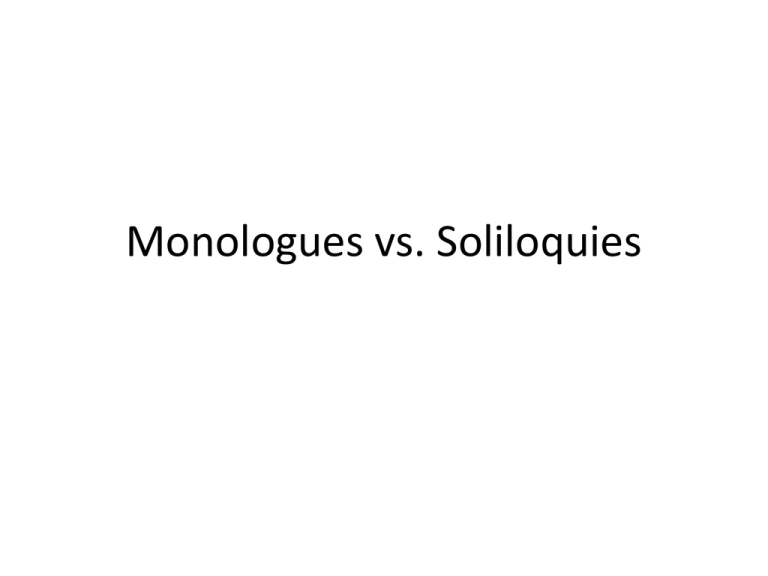
Monologues vs. Soliloquies Monologue • Definition- from the Greek monos (“single”) and legein (“ to speak”) – is a speech given by a single person to an audience. Monologue Example • Antony delivers a well-known monologue to the people of Shakespeare’s Julius Caesar. You probably know how it starts: “Friends, Romans, countrymen lend me your ears; I come to bury Caesar, not to praise him. The evil that men do lives after them; The good is oft interred with their bones: So let it be with Caesar.” Other Examples of Monologues • Samwise Gamgee to Frodo – In The Two Towers by JRR Tolkien • O’Brien’s – George Orwell’s Nineteen Eighty – Four • Elizabeth’s – Mary Shelly’s Frankenstein Soliloquy • Definition – from the Latin solus (“alone”) and loqui (“to Speak”) – is a speech that one gives to oneself. In a play, a character delivering a soliloquy talks to themselves – thinking out loud, as it were – so that the audience better understands what is happening to the character internally. Soliloquy Example The most well-known soliloquy in the English language appears in Act III, Scene 1 of Hamlet: “To be, or not to be, - that is the question: Whether ‘tis nobler in the mind to suffer The slings and arrows of outrageous fortune Or to take arms against a sea of troubles, And by opposing end them?” Other Examples of Soliloquy • Juliet’s – “O Romeo, Romeo, wherefore art thou Romeo?” • Macbeth’s – “Is this a dagger which I see before me?” • Valjean’s Les Miserables • Tony’s soliloquies (songs) – Something’s Coming, Maria – From West Side Story
